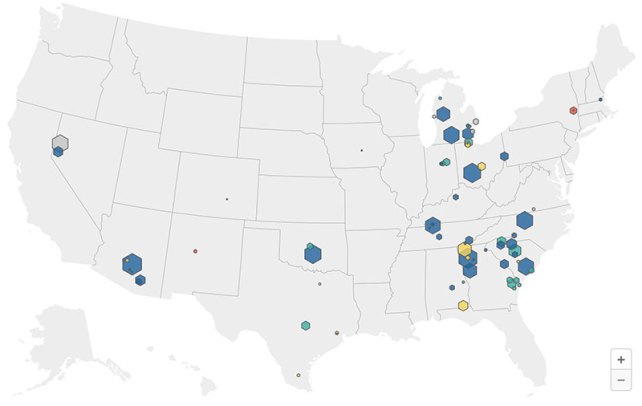Hours before announcing his 2024 campaign for the presidency on Wednesday, Florida Gov. Ron DeSantis signed a law allowing him to continue to serve as governor while he pursues the GOP presidential nomination. While that was the headline, the new law contains a series of provisions making it harder to vote in the state, including new restrictions on mail-in ballots, efforts to make it easier to purge voting rolls, and limitations on third-party voter registration groups that could gut community registration drives.
As a result, DeSantis is facing three new federal lawsuits from organizations including the NAACP, League of Women Voters, and the Hispanic Federation, which argue that the new restrictions violate the First and Fourteenth Amendments to the Constitution, including the right to free speech and association, and fundamental protections of the right to vote.
Voting rights groups say the new rules for grassroots voter registration groups are particularly burdensome. According to a summary by Democracy Docket, the new law:
Requires organizations to reregister for every single election cycle,Prohibits prefilled information on registration applications,Shortens the amount of time organizations have to return registration applications from 14 days to 10 and increases the fine associated with late delivery,Bans noncitizens and individuals with certain felony convictions from handling voter registration applications and imposes fines for each violation of this requirement, andIncreases the total aggregate fine that an organization can be levied in each calendar year from $50,000 to $250,000.Voting rights groups told the GOP-controlled legislature before the bill’s final passage that these measures “create an overwhelming chilling effect, and groups will have to decide between risking fines of magnitude they cannot shoulder, or simply cease undertaking voter registration activities altogether.” The lawsuit by the League of Women Voters said the restrictions will have “devastating consequences” that could lead it to “severely curtail” voter registration drives.
The new law is likely to have a disproportionate impact on voters of color, who are five times more likely than white voters to be registered by a third-party group.
Copyright
© Mother Jones



